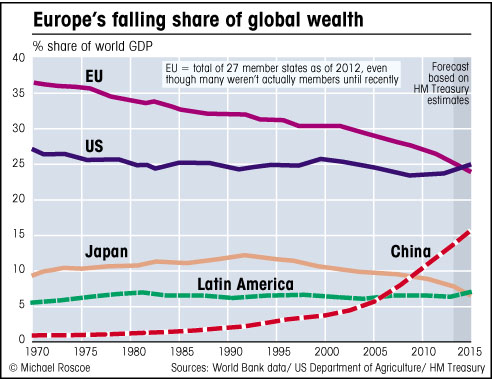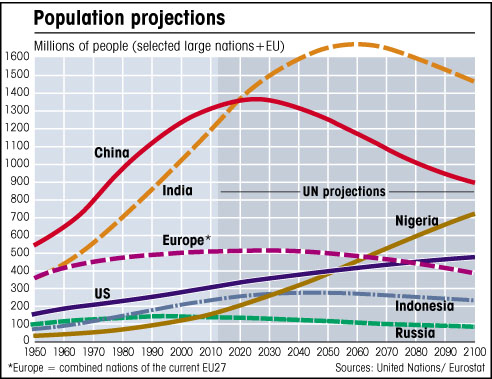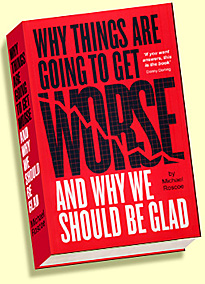The decline of Europe
For Europe in particular, prolonged recession – the end of growth – seems inevitable. There is no new industry to kick-start the growth process, no major oil finds or new technology boom, as helped during the 1970s to 90s, and of course there’s no chance of repeating the credit-fuelled construction and consumer spending spree of the last decade.
It had to happen sometime; as I pointed out at the beginning of this book, continuous economic growth is ultimately impossible, as well as being ecologically undesirable. And perhaps it isn’t surprising that Europe, the first developed region of the modern world, should be the first to experience decline. Europe is showing the symptoms of a malaise that one might expect of an advanced economy that has reached the limits of growth, with many of its natural resources close to depletion, falling industrial output, rising unemployment, declining populations in many nations, and of course the huge build-up of debt.
One might argue that European nations aren’t the first to experience these problems, that Japan has been in a similar situation for a decade or more. This is perhaps true, but Japan is a bit different; one stalled economy in a generally buoyant region. And Japan has managed to avoid the real killer of high unemployment, partly because it still has a strong manufacturing base with a large export market. In this respect Japan is more representative of Germany than of the rest of Europe. It does, however, provide some interesting clues as to what Europe can expect in the near future.

A decline in population is a good thing in terms of a sustainable future, but it raises questions with regard to the strength of the economy. How will a smaller workforce provide for an ageing population? Will there be enough workers and enough real wealth production to fund pensions, healthcare and other future government obligations? It is almost certainly the case that there won’t be, at least not while expectations are based on the boom years of the last half-century.
However, if expectations are lowered until they meet with reality, prospects don’t have to be as bad as they might look right now.

